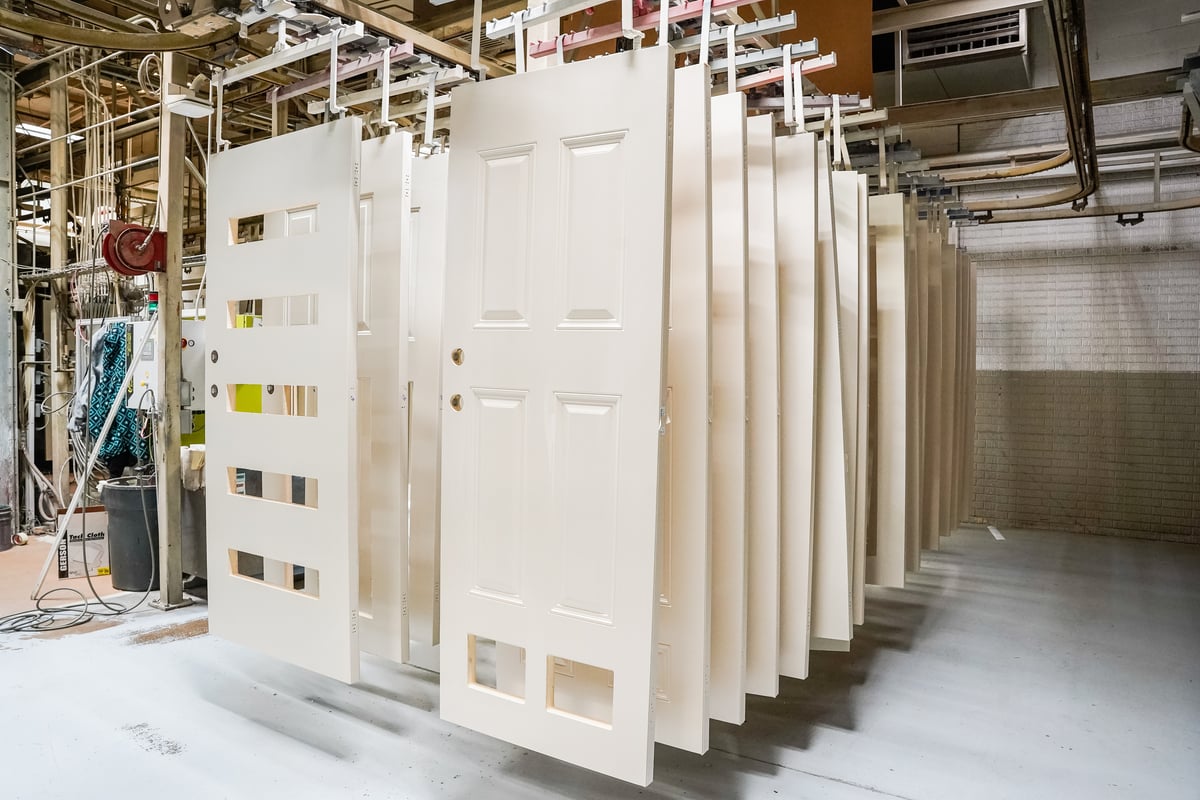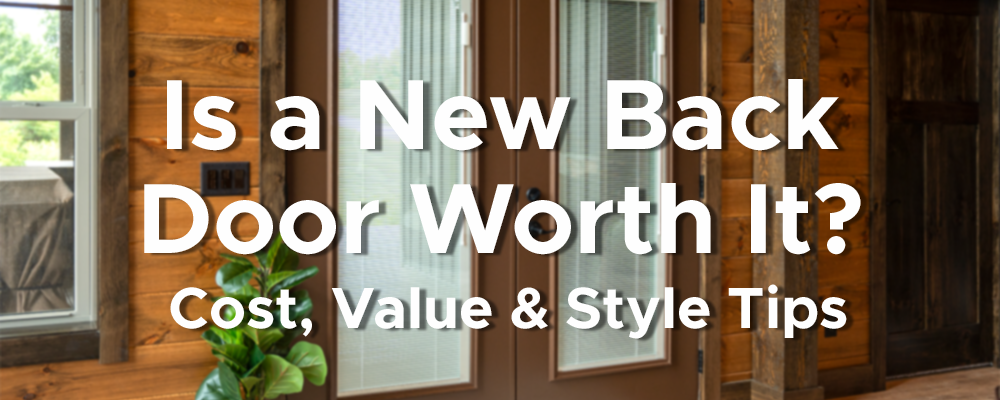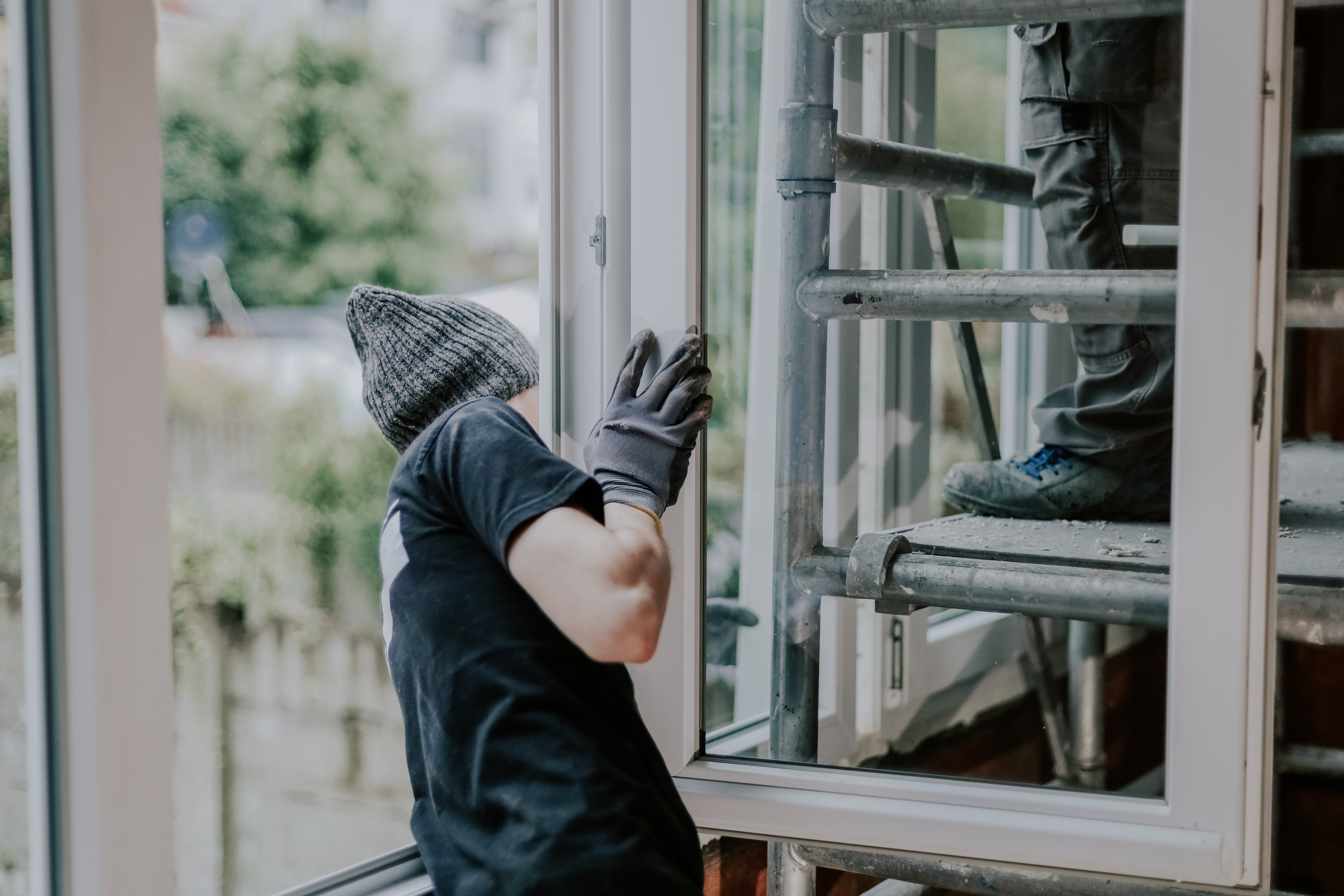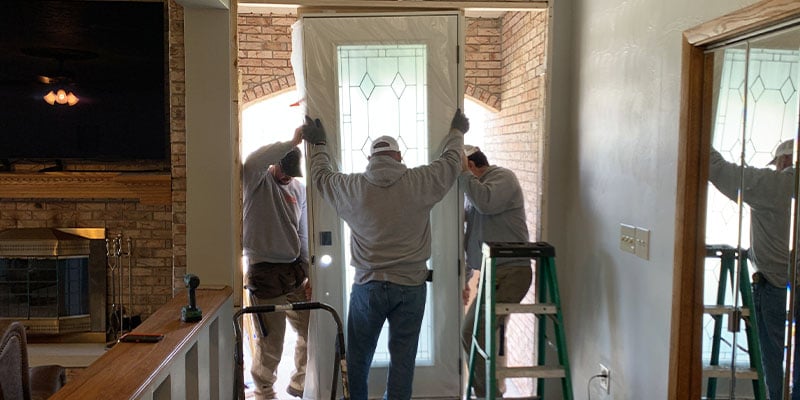Employee Installers vs. Subcontractors: What Pittsburgh Homeowners Need to Know
June 13th, 2025
10 min read

Who will actually be installing your new windows or doors?
And how much does that matter to the long-term performance and warranty of your investment?
Most homeowners assume the company they hire will handle the installation, but that’s not always the case. In fact, 77% of builders subcontract at least 75% of their work, and improper installation can lead to drafts, leaks, and voided warranties.
At Energy Swing Windows, we’ve encountered a wide range of installation scenarios. Based on decades of experience using employee installers, we’ve observed that the installation process plays a big role in customer satisfaction and product performance.
In this article, you’ll learn the critical differences between subcontractors and employee installers; what each means for your timeline, warranty, communication, and long-term satisfaction.
By the end, you’ll know the right questions to ask any company you’re considering and how to make a confident, informed hiring decision.
What's in the Article?
- Subcontractors vs. Employees: What’s the Real Difference?
- Who’s Better Trained—And Why It Matters
- Who’s Actually Accountable for the Work?
- Can Bad Installation Void Your Warranty?
- How Labor Type Affects Communication
- Are the People in Your Home Safe and Vetted?
- Pennsylvania’s Rules for Window & Door Contractors
- Will the Job Finish on Time?
- Is Cheaper Labor Really Cheaper?
- Who Gets It Right the First Time?
- 5 Smart Questions to Ask Before You Hire
- Still Deciding? Here’s How to Move Forward
- Frequently Asked Questions
Employee Installers vs. Subcontractors: What’s the Difference?
The difference comes down to who is responsible for the quality, safety, and consistency of your installation.
Employee installers work directly for the company you hire, while subcontractors are third-party crews hired on a project-by-project basis. Each model has pros and cons but they affect your experience, warranty protection, and peace of mind in very different ways.
Key Differences at a Glance
| Feature | Employee Installers | Subcontractors |
|---|---|---|
| Employment Status | Full-time employees of the window or door company | Hired per job and not directly employed by the company you hire |
| Training & Oversight | Factory-trained with company-led standards and direct supervision | Varies by crew and depends on the company’s vetting and quality checks |
| Insurance Coverage | Covered under the company’s liability and workers’ compensation policies | Coverage varies and may not be guaranteed unless explicitly provided |
| Work Exclusivity | Typically install exclusively for one company | May work for multiple companies at the same time |
| Accountability | The hiring company is fully responsible for workmanship and customer experience | Accountability depends on how closely the company manages subcontractors |
| Clarity in Communication | Clear chain of command with direct customer support | Can be unclear unless roles and responsibilities are clearly documented |
Scroll to view entire table
Why Do Some Companies Use Subcontractors?
Subcontracting isn’t always a red flag. Some companies use subs to scale during busy seasons. However, the level of oversight and training is what truly determines the quality of your installation, not just the labor model itself.
Always ask: Who will be doing the installation? Are they employees or subcontractors? Are they covered by your insurance and warranty policies?
We’ve reviewed and compared local providers in The 10 Best Window and Door Companies in Pittsburgh, so you can see how different companies handle installation and what that means for your project.
Which Installers Have Better Training and Experience?
It depends on the company’s standards, not just the installer’s employment status. Once you know who’s doing the work, the next question becomes: how qualified are they?
While employee installers typically receive brand-specific training, some subcontractors bring years of cross-company experience. The key is to ask the right questions.
How Training Typically Differs
| Installer Type | Training & Experience Path |
|---|---|
| Employee Installers | Trained directly by the company or manufacturer, typically following a consistent installation process. Often specialize in a single product line or installation method. |
| Subcontractors | Experience can vary widely. Some have completed thousands of installations, while others work across multiple trades and companies. Specialization is not guaranteed. |
Pro Tip: Ask if your installer is certified by the window or door manufacturer—and how often that certification is updated.

Ask whether your installer is certified by the specific window or door manufacturer and how often that certification is renewed.
What Matters Most?
Regardless of who does the work, these are the critical questions to ask:
-
Are the installers factory-certified for the brand you’re purchasing?
-
How often do they receive updated training?
-
Is oversight provided during installation?
-
Are they accountable to your project manager or company rep?
In short: great installation starts with great standards, not just job titles.
Do Employee Installers or Subcontractors Deliver Better Quality and Accountability?
When something goes wrong, who’s responsible and who fixes it?
This is where the installer model can have a real impact on your experience. Quality and accountability come down to how the company manages the job, not just who’s doing the work.
How Accountability Typically Works
| Factor | Employee Installers | Subcontractors |
|---|---|---|
| Project Oversight | Managed directly by the company, often with a dedicated team lead or project manager | Managed by the subcontractor’s crew; level of oversight varies by company |
| Communication | Typically streamlined with a clear point of contact inside the company | Can be fragmented and may require going through multiple layers for updates |
| Issue Resolution | The company is directly responsible for resolving problems | Depends on how closely the company manages its subcontractors |
| Responsibility | Clear company accountability from start to finish | Shared responsibility that can be harder to clearly define |
What Should You Ask?
Before hiring any company, ask:
-
Who will manage the project on-site?
-
How is communication handled during installation?
-
If something goes wrong, who is responsible—and how quickly can I expect a resolution?
Buyer Tip: Accountability gaps usually appear after the job is done. Clarity upfront protects you later.

Can Bad Installation Void Your Window or Door Warranty?
Yes!! Improper installation is one of the most common reasons a window or door warranty gets voided.
Most window and door products come with solid warranties, but what many homeowners don’t realize is that how the product is installed directly affects whether that warranty stays valid. That’s why it’s important to understand what our lifetime warranty actually covers and how proper installation plays a role in protecting it.
Why Installation Affects Warranty Coverage
-
Most manufacturers require certified installation to keep warranty protections valid.
-
If the product is installed incorrectly (even slightly) it can lead to leaks, drafts, or structural issues that are not covered, even if the product itself isn’t faulty.
-
Warranties often exclude installation-related problems unless explicitly handled by the company under contract.
Who Is Actually Responsible?
Ask these questions before you sign:
-
Is your installer certified by the product manufacturer?
-
Does the company guarantee installation workmanship in writing?
-
If a problem arises, who handles it? The installer, the manufacturer, or the contractor?
Why This Matters
Whether using employee installers or subcontractors, the best companies ensure:
-
All installers are trained and certified by the manufacturer.
-
You’re fully covered in writing for installation errors—not just product defects.
-
There's clear accountability if something goes wrong later.
How Does Installer Type Affect Communication During Your Project?
Clear, consistent communication can make or break your window or door project.
And who’s doing the work (employee or subcontractor) can directly affect how organized the process feels.
Your project should never feel like a game of telephone. A company with a strong communication process, regardless of installer type, should be able to walk you through what to expect, who to contact, and how issues will be handled.
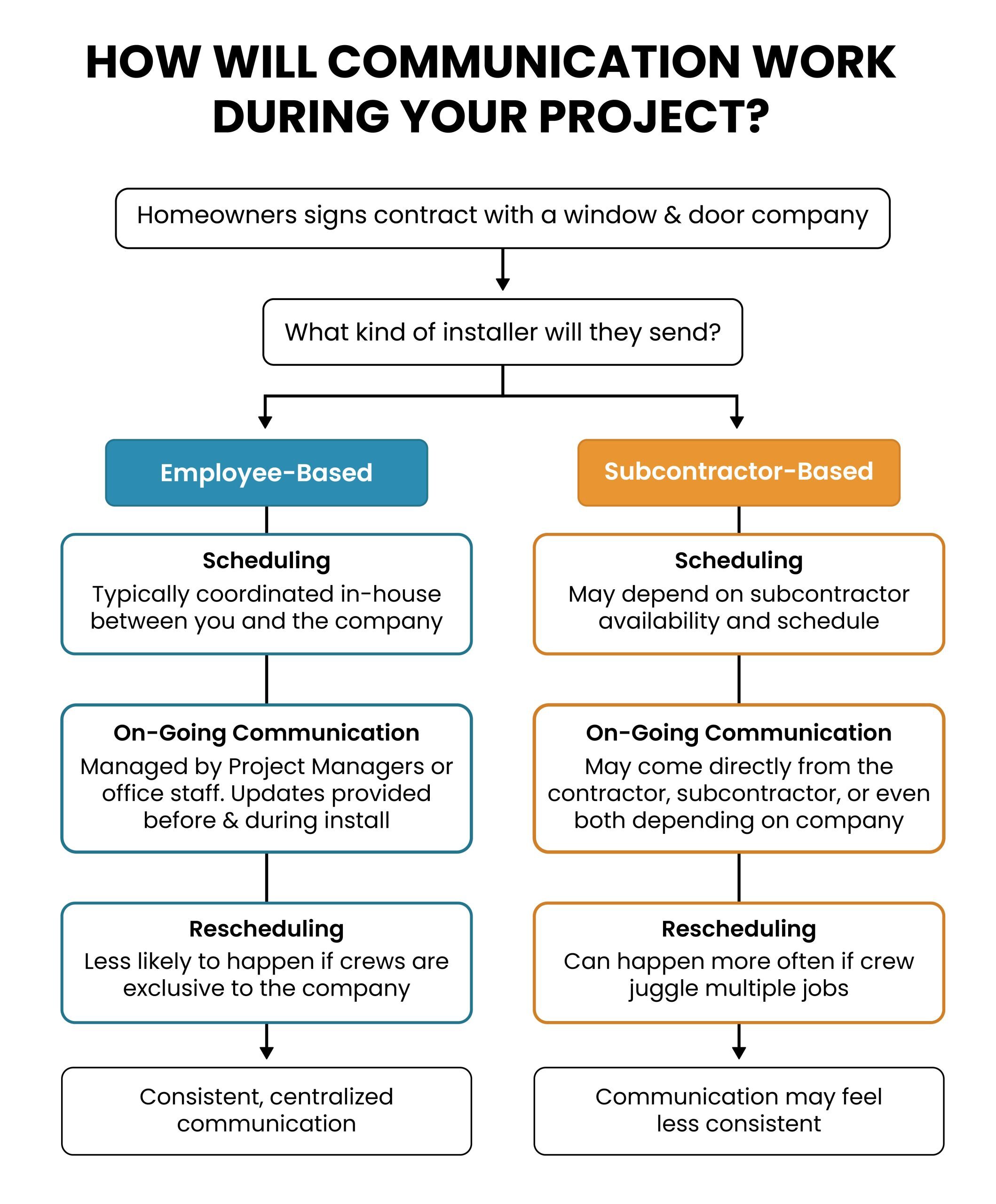
re Installers Properly Vetted, Insured, and Safe to Work in Your Home?
If someone is working inside your home, trust and safety aren’t optional they’re essential.
Whether your installers are employees or subcontractors, you deserve to know they’ve been vetted, insured, and held to professional standards.
Whether someone is an employee or a subcontractor, they’ll likely be working inside your home, often in private areas. Trust and safety should never be an afterthought.
| Factor | Employee Installers | Subcontractors |
|---|---|---|
| Background Checks | Typically completed as part of the company’s formal hiring process | Varies by subcontractor and depends on the company’s policies |
| Drug Testing | Often required during hiring and throughout employment | May or may not be required — always ask directly |
| Insurance Coverage | Covered under the company’s workers’ compensation and liability insurance | Should carry their own insurance, but coverage is not always verified |
| Who’s Responsible? | The company you hired assumes full responsibility | Responsibility may be unclear unless clearly defined in writing |

Key Questions to Ask Your Contractor:
-
Are all installers background checked and insured?
-
Will the people entering my home be employees or subcontractors?
-
Who provides Workers’ Compensation and liability coverage?
-
Can I get proof of insurance and coverage in writing?
Reminder: Most homeowners insurance does not cover damage or injury caused by an uninsured or underinsured contractor.
What Are the Contractor Requirements in Pennsylvania and Pittsburgh?
In Pennsylvania, window and door contractors must follow strict legal guidelines to protect homeowners from fraud, unsafe work, or abandoned projects.
The most important law is the Home Improvement Consumer Protection Act (HICPA) and it applies to both contractors and subcontractors. It exists to protect homeowners from fraud, incomplete work, and unsafe practices.
Who Must Register Under Pennsylvania’s Home Improvement Law?
Any person or business performing $5,000+ in home improvements per year must register with the PA Office of Attorney General, even if they aren’t contracting directly with the homeowner.
What Must Be Included in a Home Improvement Contract?
For any job over $500, Pennsylvania law requires a written, signed contract that includes:
- Full names, contact info, and HICPA registration numbers for contractor and subcontractors
- Estimated start and completion dates
- Clear description of work and total cost
- Any deposit amounts (especially for custom/special-order materials)
- A 3-day cancellation policy and the PA consumer protection hotline: 1-888-520-6680
What Contractor Practices Are Prohibited by Law in PA?
Under HICPA, contractors and subcontractors may not:
-
Work without HICPA registration
-
Change the scope of work without a signed change order
-
Take more than 1/3 of the total cost upfront, unless it’s for special-order materials
-
Ask for payment before a contract is signed
-
Abandon a job without cause
What About Local Rules?
If you live in Pittsburgh or surrounding areas, be aware:
-
Many municipalities require additional local contractor licenses, liability insurance, and safety certifications
-
Always verify your contractor meets both state and local requirements
Check a contractor's registration status with the PA Attorney General here.
Will Employee Installers or Subcontractors Finish the Project on Time?
That depends on who’s doing the work and how closely the company oversees them.
| Installer Type | How Timing Is Managed |
|---|---|
| Employee Installers | Typically paid hourly, allowing time to follow company standards and complete the installation thoroughly without rushing. |
| Subcontractors | Often paid per project, which can encourage faster installs and create more variability in timing and quality without strong oversight. |
The Real Question: Who’s Ensuring It Gets Done Right?
Ask the company:
-
How is your installation team compensated?
-
Is speed prioritized over quality?
-
What oversight or supervision is provided during the job?
The best companies, regardless of installers, make sure every crew is supported, supervised, and held to high standards
Poorly managed installations often lead to delays, callbacks, or worse... hidden problems that show up months later. A well-run crew, with the right structure in place, should finish on time and with quality that lasts.
Are Subcontractors Cheaper Than Employee Installers?
Sometimes, but lower cost doesn’t always mean better value.
| Factor | Employee-Based Installers | Subcontractor-Based Installers |
|---|---|---|
| Company Costs | Typically higher due to full-time wages, training, insurance, and employee benefits | Often lower since subcontractors are paid per job and carry their own insurance |
| Homeowner Risk | Lower — the company assumes liability, workers’ compensation, and training responsibility | Higher — oversight, insurance coverage, and accountability can vary widely |
| Final Price to You | May be higher upfront, but often includes stronger protections and long-term support | Can be lower initially, but may not include warranty-safe installation or post-project service |
The Real Cost of “Cheap” Labor
A subcontractor-based company might charge less, but:
-
Will the savings be passed on to you?
-
Will installation mistakes cost more in the long run?
-
Is the installation covered under warranty?
Cheaper labor doesn't always mean lower total cost. Poor installation can lead to leaks, damage, or voided warranties—costing more later.
What to Ask Before You Choose Based on Price:
-
Is the installation team covered under your warranty?
-
Who pays for errors? Me or the company?
-
What’s included in the quote: oversight, insurance, cleanup, follow-up?
Peace of mind isn’t always listed on the estimate, but it matters.
Which Type of Installer Gets It Right the First Time—and Keeps It That Way?
A top-tier product won’t perform well if it’s installed poorly.
Long-term performance depends more on the quality of installation than the brand name on the box.
What Makes an Installation Last?
- Proper flashing, leveling, and sealing
- Adherence to manufacturer specs
- Pride in craftsmanship
- Support from a well-run company
A great product + poor install = potential failure in just a few years
A mid-range product + excellent install = decades of reliable performance
So... Who Does It Better?
Whether it's an employee or a subcontractor, the answer comes down to:
-
Consistency: Are all crews following the same high standard?
-
Training: Are installers certified and up-to-date on best practices?
-
Accountability: Who checks the work? Who owns the outcome?
Great installers exist in both models. The difference is how the company supports and manages them.
5 Questions to Ask Before Hiring a Window or Door Installer
The right questions today can protect you from costly surprises later.
Before signing any contract, ask these five questions to ensure you're hiring a trustworthy, well-structured team.
1. Are your installers employees or subcontractors and will you confirm that in writing?
Why it matters: Labor model affects oversight, insurance, and accountability. Ask them to state this clearly in your contract.
2. If you use subcontractors, are they registered with the state?
All subs in Pennsylvania performing over $5,000 in home improvements annually must be registered under HICPA. Request a copy of their registration certificate.
3. Are the installers certified by the window/door manufacturer?
Certification helps ensure your warranty remains valid. Ask how often certifications are renewed or updated.
4. Are all workers covered by liability and Workers’ Compensation insurance?
Protects you from legal or financial exposure if someone is injured or something is damaged. Request proof of both coverages.
5. Who is responsible and who do I contact if there’s a problem after installation?
You need one clear point of accountability if something goes wrong. Ask: “Who owns this project from start to finish?”
Bonus Tip: If subcontractors are used, consider requesting a signed mechanics lien waiver, it protects your property from potential claims if a subcontractor isn’t paid.
Should You Choose Employee Installers or Subcontractors for Your Home?
Choosing between subcontractors and employee installers isn’t about right or wrong, it’s about asking the right questions and understanding how each model affects your warranty, communication, and long-term satisfaction.
By now, you know how installation type influences quality, accountability, and peace of mind. Use that insight to guide your contractor conversations.
If you're comparing companies in the Pittsburgh area, start with the 10 Best Window and Door Companies in Pittsburgh to see how different teams handle installation.
Prefer to work with a company that uses only full-time employee installers—no subs, no surprises?
Schedule a consultation with Energy Swing Windows today. You'll meet the actual team who will be working in your home, and we’ll walk you through every step with clear, accountable communication from day one.
FAQ On Subcontractors and Employee-Installers
Are employee installers better than subcontractors?
Not necessarily. Both employee installers and subcontractors can do excellent work. What matters most is how the company trains, certifies, insures, and oversees the installers working in your home. A well-managed subcontractor can outperform a poorly supervised employee crew, and vice versa.
Can subcontracted installers void my window or door warranty?
They can — but only if the installation doesn’t meet manufacturer requirements. Most window and door warranties require proper installation according to specific guidelines. If an installer (employee or subcontractor) fails to follow those standards, the manufacturer may deny warranty claims. Always ask who is responsible for installation-related warranty issues and get it in writing.
Who is responsible if something goes wrong after installation?
Responsibility should fall on the company you signed a contract with — not the installer personally. Reputable companies clearly define who handles service issues, warranty claims, and repairs after installation. Before hiring, ask who you should contact if a problem arises and how post-installation service is handled.
Are subcontractors insured and covered by Workers’ Compensation?
It depends on the company’s policies. Employee installers are typically covered under the company’s liability and Workers’ Compensation insurance. Subcontractors should carry their own insurance, but coverage levels vary. Homeowners should always request proof of liability insurance and Workers’ Compensation coverage for anyone working on their property.
How can I tell if a contractor is registered in Pennsylvania?
In Pennsylvania, contractors performing over $5,000 in home improvement work annually must register under the Home Improvement Consumer Protection Act (HICPA). You can verify registration through the Pennsylvania Attorney General’s contractor database and should always confirm registration numbers before signing a contract.
Do employee installers finish projects faster than subcontractors?
Not always. Project timelines depend on scheduling, oversight, and crew size — not just employment status. Employee installers may have more flexibility to slow down for quality control, while subcontractors may work on a per-project basis. What matters most is how the company manages timelines and quality expectations.
Should installer type affect which window or door company I choose?
Installer type should be part of your decision, but not the only factor. Training, certification, communication, warranty coverage, insurance, and accountability are more important than whether installers are employees or subcontractors. The best companies are transparent about how installations are handled and who stands behind the wor.












.jpg?width=1200&height=550&name=Copy%20of%20Copy%20of%20ESW%20Collage%20Template%20(3).jpg)
